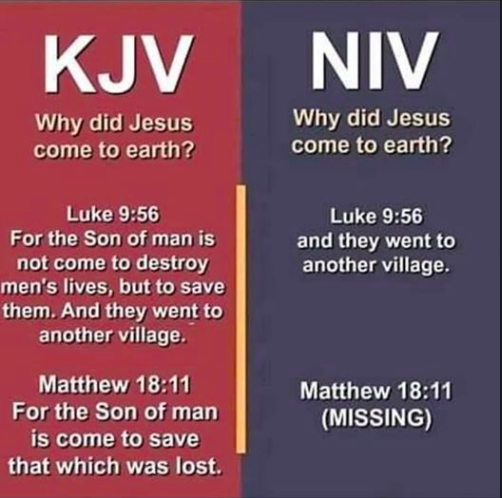Why I still read the Bible
Written by Rhys Bezzant
I have been a Christian for over forty years, and I still read the Bible. Sometimes with more spiritual focus, and sometimes with less. I hate it when my Bible reading is rushed, but that does happen at least a few times a week. My Bible reading might be directed towards a sermon I am preparing in a few weeks’ time, but equally I might be reading a book of the Bible because it has been a long time since I last made my temporary home there. The passage might be long and meandering, or alternatively short and sharp. I normally spend time reading before I focus on praying, but I know that I could organise my devotional time the other way around. Old habits die hard! There is however one devotional habit that I have reshaped. I used to follow the ACTS principle: first adoration, then confession, then thanksgiving, then supplication. But I have realised that the psalms don’t necessarily follow this pattern, so I feel free to begin my time of prayer with whatever prayer posture suits the day, or even suits the reading. The Bible can set the agenda for my prayers and suggest how I go about them on that particular day to keep my praying fresh. However I don’t read the Bible just as an overture to my prayers. Reading the Bible does a whole lot more than that.
Reading the Bible in a time of quiet is not a warm-up exercise, but is rather a whole body workout in itself. Reading the Bible is not merely an occasion to engage with rational content but is a more spiritually demanding apparatus. For I want to encourage every Christian to persevere in engaging with the Scriptures attentively because they consist of words not pictures. And words are magnificent things! We are prone to think that the purpose of words is to transmit information – which they do – but they do so much more. Words convey emotion and hit the heart. Words address our will and demand our obedience. Well-chosen words lift us beyond the everyday and motivate us to look to the reality we inhabit and to look up to the one who guides history. Words reveal the soul of the speaker, and when we know the soul of our friends we grow in confidence to hold fast to their promises. Words are carried through the air with the breath of the one who whispers, so words are the framework for relationships. Of course I am not so naïve as to think that words can’t damage people. I have been on the receiving end of harsh words. And words may reveal a duplicitous heart as well as reveal one that is true. Words in the last hundred years have been used disastrously for propaganda and advertising, both devaluing their currency. But God has chosen words to be the primary vehicle for his promises, presence, and purpose, and has made himself most clearly known in the Word made flesh, the Lord Jesus Christ. Even today, the Son holds all things in this cosmos together through his powerful word (Heb 1:3).
So when I come to read the Bible, I discover that God addresses every part of me, and in doing so makes me whole again. There is never a time when we should consider giving up reading the Bible, because there is never a time when we don’t need to be remade in the image of Christ.
In fact, I can do better than just accidentally find myself reading the Bible. I need to run towards the Lord who will address me in his Word. And when I turn towards him, I am making a decision, and surrendering my body, and yearning with my heart, and expecting with my mind to learn Christ again, as Paul describes Christian discipleship in Ephesians 4:20. When I come to grasp that God’s words will engage with every part of my life, I should bring every part of my life to him, so running is a great metaphor. The whole point of fearing the Lord is weirdly not to run away from him as the word fear might suggest, but to run towards him. To fear the Lord is to run to the Lord! To fear him means to put myself in the position of a learner, as the first few chapters of the book of Proverbs picture. There may be days in the week when I find myself physically running out of the door because I am late for work, but that shouldn’t exhaust the opportunities I take for spiritual running, eagerly coming back to the Lord in his Word even when that happens not to be first thing in the morning. And this is true when I am feeling like I have let the Lord down again. In fact, the best thing to do when you are conscious of your sin is not to hide your face from the Lord but to seek his face, pursuing him to grasp hold of cleansing and forgiveness in order to sate your hunger. We must keep close accounts with the Lord, and regularly practise eating his flesh and drinking his blood (John 6:54). He is better than the manna from heaven, satisfying us daily if only we would take up his life-giving word. Where else can we go, asks Peter, to find the words of eternal life?
So what is the best posture for prayer? Kneeling? Pencil in hand? Devotions at the break of day? Actually it is running with all that you are to allow God to address all that you bring. The posture is spiritual and only secondarily physical. The pattern and the rhythm of a devotional life have been for me of enormous help in times of darkness and despair, but these are external helps at best. Celebrating the life of the Spirit within is something altogether more substantial.
In which case, we need to work out what is the best way to read the Bible today, because that might look a little different from yesterday. Of course, it is likely to be the same physical book or device as yesterday. But that doesn’t mean that how I spend my time is the same. Yesterday I read a passage quickly from end to end, to see if God gives any reasons why Jeremiah has to buy a field during a siege (Jeremiah 32). But today I wanted to work out how Jeremiah understands his own personal relationship with the Lord in the same chapter when he prays. And tomorrow, I might just take up God’s response to Jeremiah, in the words “Is anything too hard for me?” and repeat it over and over in my mind to taste and see that the Lord is good indeed. I might even visualise myself in the storyline and imagine what I would do if one prophet was telling me to stay in Jerusalem, and another – namely Jeremiah – was advocating giving up and going with Nebuchadnezzar to Babylon. The tension between the prophets has been bubbling up throughout the book, but the choice to stay or to go represents the clash of the prophetic titans. Which side will I be on? What does that mean for my sacrificial discipleship today? Perhaps, I will ask, what should I do in this time of covid to help me look beyond the immediate crisis and yearn hopefully for the future, though I suspect it won’t be to buy a field. There aren’t too many of them in the inner suburbs of Melbourne.
I can read the Bible slowly to capture its emotion, or I could read it quickly to get an overview of a story. I can allow the Scriptures to speak to a decision I have to make today, or to address a talk I have to give tomorrow. The Bible is wonderful in the variety of literary genres it contains, and it never ceases to surprise me that a passage I have known well can speak to me in fresh ways through the Spirit’s prompting. There are seasons to read a prophet’s warnings, seasons to travel with Jesus on the road to Jerusalem, and even seasons when the book of Revelation can bring spiritual comfort as well as intellectual challenge. I am still reading the Bible. Not always because I want to. But always because the Lord serves my soul when I do.

